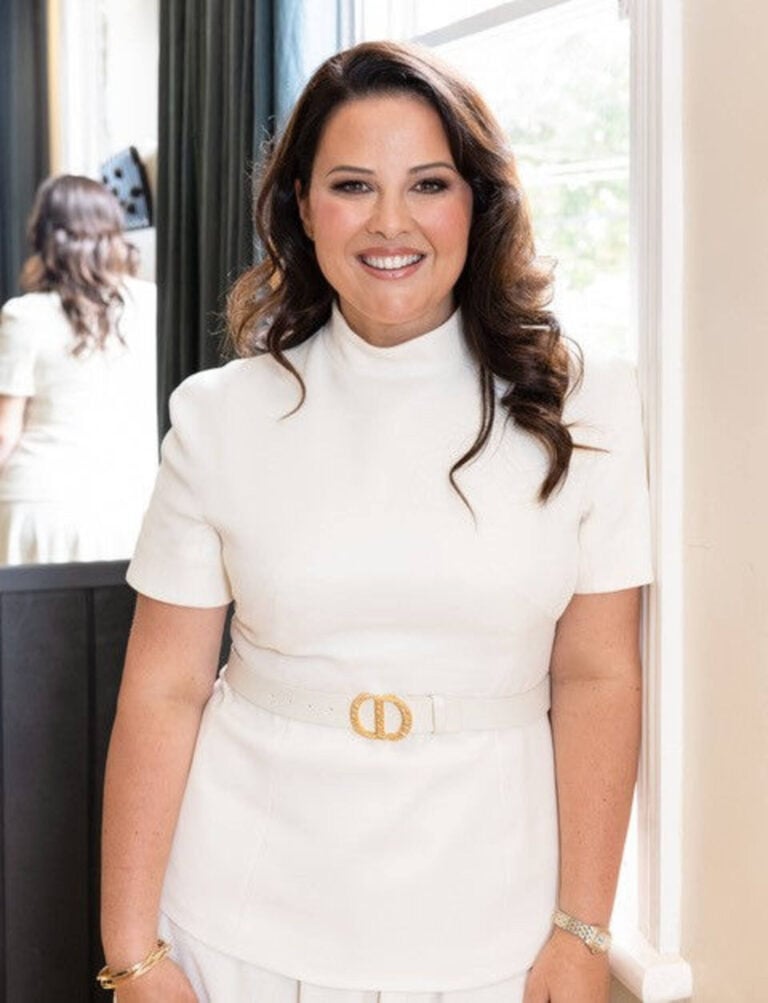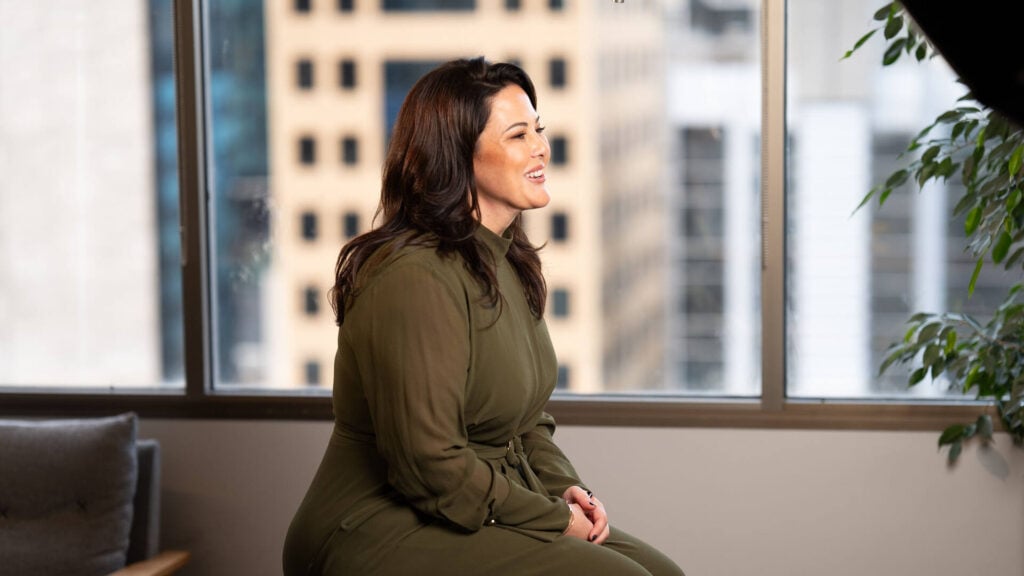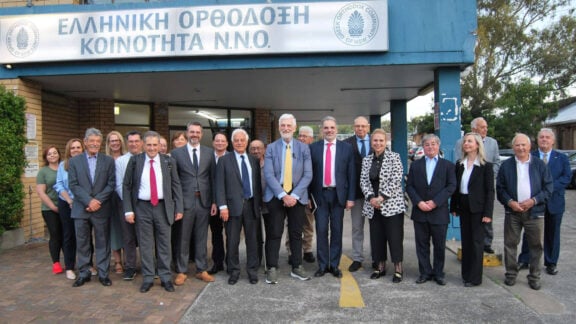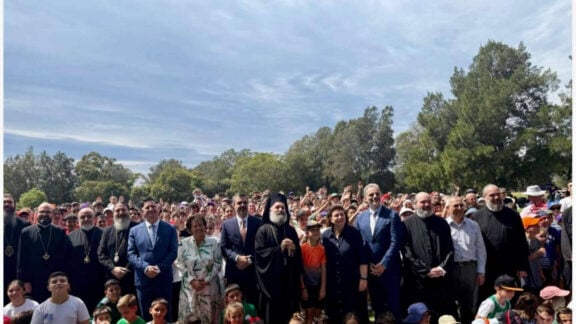Yiayia was responsible Lauren Cassimatis becoming a criminal lawyer – and the road has become bumpier as we became addicted to true crime entertainment.
Cassimatis is in her 20th year practising law. She entered law the counsel of her yiayia.
“I originally wanted to be a fashion designer but was inspired and encouraged by my grandmother Aphrodite to pursue a career in law,” she told Neos Kosmos.
“She would often say ‘you are exactly like your pappou Alexandros, a great negotiator, advocate and protector’. I wanted to do them both proud and was motivated by her belief in me.”
Inspired by her yiayia, the Melbourne-born lawyer with ancestral roots in Kythera, Chios, Constantinople, and Smyrna pursued a career in criminal law, eventually founding her own firm, Gallant Law, in 2019 to defend clients in criminal cases.
Cassimatis has spent her career working to ensure the whole picture of a case is painted before judgement is passed, a task that has become increasingly more challenging with the rise of true crime entertainment.
“The true crime stories can skew reality and unfairly represent a victim, or an accused person,” Cassimatis said.
She described the true crime boom as the modern version of “trial by media”, stating it often blends fact and narrative to maximise drama and, as a result, influences opinion.

“Media coverage, especially through high-profile true crime podcasts and TV series can shape public opinion about a defendant long before trial, undermining the presumption of innocence and the fairness of jury proceedings,” Cassimatis said.
The lawyer stressed that in the absence of hard-hitting evidence like DNA matches, or confessions, (which are not always present), people can be influenced by sensational storytelling.
Cassimatis noted the phenomenon of unintentional glorification that comes with sensationalised true crime storytelling and that criminologists argue can provide ‘fuel’ for others already predisposed to criminal behaviour, seeking attention or fame to commit similar crimes.
“It is difficult to quantify, but true crime’s glorification of criminal detail may unintentionally signal the kinds of notoriety possible through shocking crimes,” she said.
Cassimatis highlighted a positive that has come from true crime media, which is serving as a catalyst for legal reforms and exoneration efforts, citing the case of Netflix’s Monsters as an example.
Navigating the media hurdle
The increased media and public interest in these cases has added an extra dimension to the work of lawyers. Cassimatis said they must manage media messaging, confidentiality risks and heightened client expectations.
The Gallant Law founder and director admitted that media can put a strain on clients and lawyers alike.
“I have had media pounding on clients’ front doors, refusing to leave until police have been called to attend for trespass,” she said.
“Other media have shared my clients’ residences and places of work, which has put my clients’ and their colleagues’ safety at risk or damaged their reputations, even if they may be innocent.”
She emphasised that they never wish for cases to become big media stories, though admitted that some naturally have intrigue, such as those that are an Agatha Christie-style mystery.
“I represented a man accused of murdering his wife’s lover. It was a ‘crime of passion’ and a ‘whodunnit’. This was followed closely by the community because it was equally tragic as it was riveting because of the shock-value and mystery,” she said.
“Generally, though, lawyers know when a case will capture attention or have enough of a “shock value” element so we will always prepare our clients for it and, where we can, apply for suppression orders.”
The misconceptions of criminal law
Cassimatis said there are many misunderstandings around criminal law, especially regarding the notion that the system always gets it right and that arrests imply guilt.
She expressed that mistakes and wrongful charges do occur while, even in cases where the person is guilty, the situation can be far more nuanced.
“Defence lawyers are often unfairly seen as ‘the dark side’ defending ‘bad people’ or getting a kick out of others’ crimes, though our role is actually to protect legal rights and ensure a fair trial,” she said.
“People who do offend usually carry a lot of unresolved trauma, were victims of crimes themselves (particularly abuse) and are usually vulnerable due to factors such as mental health issues, cognitive or learning issues, or have experienced a significant change in their personal circumstances, a dark chapter for them.”
Cassimatis said her wish is that media turned away from sensational simplification of cases and highlighted the more nuanced picture of each case, as well as the legal process itself.
“If we could report with more nuance, accuracy, and sensitivity, it would help the public understand that criminal law isn’t about dramatic conclusions but about ensuring fairness and preserving the rights of everyone involved, regardless of how a case is portrayed.”

Embracing filoxenia
Despite being Australian-born, Cassimatis has maintained strong ties to her Hellenic heritage and has especially been influenced with the idea of displaying “filoxenia” to all people.
“It carries a deep meaning. It embodies a cultural tradition of welcoming and generosity towards strangers, a moral obligation which I know I live by in my personal life and as a lawyer.”
She has carried that sentiment across her career, which she has also practised through ‘Connecting Lawyer Mums’, a networking and support group designed to boost the personal and professional lives of lawyer mothers.
“I don’t believe that women should experience ‘career interruptions’ because they rightly choose to raise a family and be ambitious. With the right support and connections, you can be happy at home and at work.”
Cassimatis also teaches at the College of Law as an adjunct lecturer.
“I’m passionate about inspiring and motivating young lawyers to be fantastic, empathetic and dedicated lawyers and leaders in the law.”
It is appropriate Cassimatis also teaches as she stressed the importance of education above everything in creating a more accurate understanding of criminal law and even preventing it.
“(Regarding founding Gallant Law) I felt it was essential, and still feel strongly about this, to educate the community on what actually causes crime and the necessity for preventing crime through education and rehabilitation rather than a primary focus on punishment, which only contributes to the cycle of crime,” she said.
“In terms of cases, it is so crucial that a jury is presented with an accurate case theory to exonerate those that are truly innocent.”









